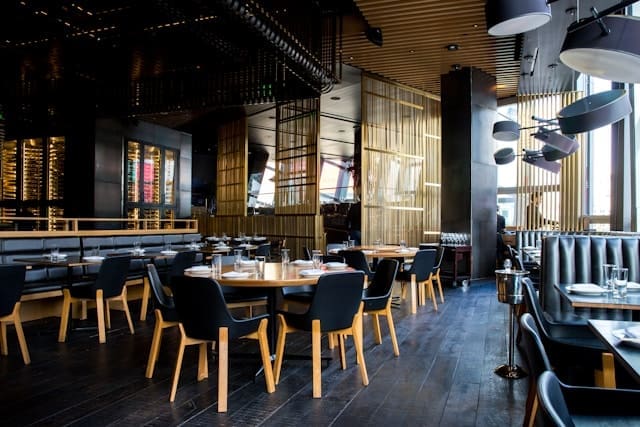Embarking on the journey of opening a restaurant is an exhilarating venture that requires meticulous planning, an undying passion for food, and an understanding of the local market. Whether you dream of a quaint cafe or a bustling eatery, it’s essential to arm yourself with knowledge about startup procedures, regulations, and the nuances of the food service industry. With the culinary scene becoming increasingly competitive, it’s vital to stand out with a concept that resonates with your target demographic. Below, we’ll guide you through the crucial steps to launch a successful restaurant in your city.
Understanding the Restaurant Business Landscape in Your City
Before diving into the restaurant world, a thorough research of your city’s dining scene is crucial. Investigate the most popular types of cuisine, the busiest dining times, and the areas with the highest foot traffic. This knowledge will help you identify potential gaps in the market you could fill. Pay attention to the performance of recently opened establishments to gauge the local appetite for new dining experiences.
Crafting a Unique Concept and Menu for Local Appeal
Defining your restaurant’s concept is the cornerstone of your brand identity. The atmosphere, menu, and service style should all align with the overall theme and appeal to the local market. Whether you’re contemplating a farm-to-table approach, ethnic cuisine, or a fusion that’s never been tried before, your concept will dictate the customer experience.
The crafting of your menu goes hand-in-hand with your concept. It should not only reflect your brand but also cater to the tastes of the community. Take into consideration local produce availability, dietary preferences, and regional specialties. The key is to innovate within these parameters to create dishes that surprise and delight.
Avoid overcomplicating your menu as this can overwhelm your customers and complicate kitchen operations. Speaking of kitchen operations, you’ll want to ensure you have the right kitchen supplies and food service equipment. You can check out The Restaurant Warehouse in Los Angeles to ensure you have everything you need for your establishment.
Securing the Ideal Location and Navigating Zoning Laws
Finding the perfect location is a significant step in realizing your restaurant dream. Accessibility, visibility, and the surrounding businesses can greatly affect your establishment’s foot traffic and, consequently, its success. Consider areas with high commercial activity or emerging neighborhoods ripe for development.
During your site selection, zoning laws are a critical factor. These regulations determine what types of activities can occur in certain areas. Ensure that the property you’re considering is zoned for restaurant use or that you can secure a variance. Additionally, study the permitting process as it can be time-consuming, and you’ll want to account for this in your timeline.
Building a Solid Business Plan and Obtaining Financing
Creating a comprehensive business plan is an indispensable step. This document should outline your concept, market analysis, marketing strategy, financial projections, and detailed operational plans. It acts as a roadmap for your business and is crucial when seeking financing from banks or investors.
Your plan should clearly demonstrate how your restaurant will become profitable. Include realistic financial estimates and consider various scenarios. It is also wise to highlight what sets your restaurant apart from competitors and how you intend to maintain a competitive edge.
Navigating Licenses, Permits, and Health Regulations
Compliance with local and state regulations is non-negotiable when opening a restaurant. You’ll need to obtain the proper licenses and permits before you can start operating. These can range from a basic business license to specialized permits for alcohol service, outdoor seating, or live entertainment.
Health and safety regulations are particularly stringent in the food service industry. Familiarize yourself with the local health codes and ensure your facility design, food handling processes, and staff training align with these standards. Regular health inspections will be a part of your operational routine to maintain public safety.
Last but not least, think about the importance of insurance in shielding your business from unforeseen events. Various types of coverage, including property, liability, and worker’s compensation insurance, will protect your assets and provide peace of mind. Consulting with a legal expert can ensure you have all regulatory bases covered.
Overall, opening a restaurant is an intricate process that entails more than a love for food; it’s a foray into strategic planning, market understanding, and operational agility. By following a structured plan to navigate the business landscape, create a compelling brand, select a prime location, procure financial backing, and comply with regulations, you can transform your culinary dream into a thriving reality. The result is not just a restaurant, but a gathering place that reflects your vision and feeds the soul of your city.
The New Jersey Digest is a new jersey magazine that has chronicled daily life in the Garden State for over 10 years.
- Staffhttps://thedigestonline.com/author/thedigeststaff/
- Staffhttps://thedigestonline.com/author/thedigeststaff/
- Staffhttps://thedigestonline.com/author/thedigeststaff/
- Staffhttps://thedigestonline.com/author/thedigeststaff/


